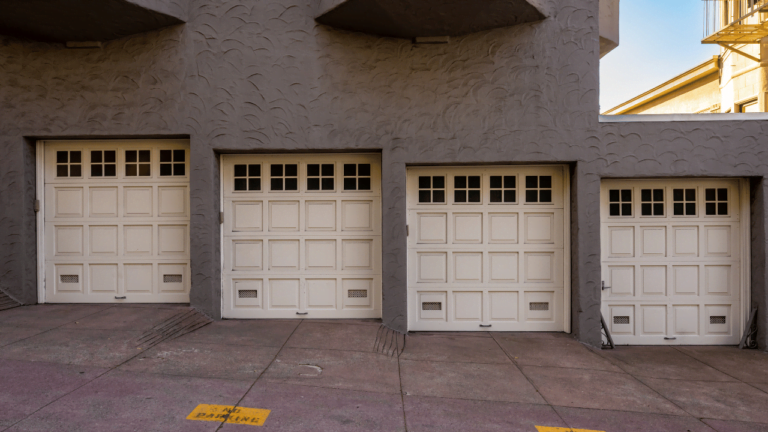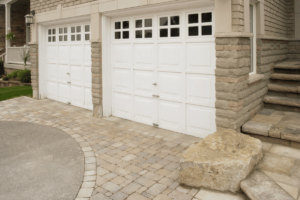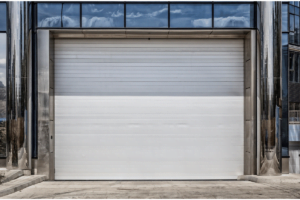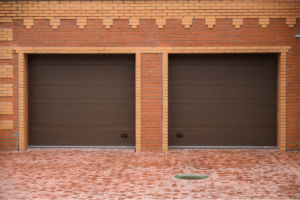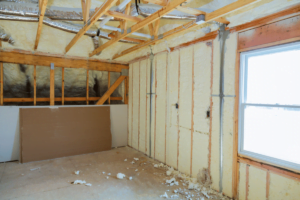Table of Contents
Are you facing the peculiar situation where your garage door opens fine but doesn’t close properly, going down just about two feet before coming back up? Why does my garage door go down 2 feet then back up? This issue can be perplexing and frustrating, especially when you can’t figure out the cause. Understanding why this happens involves examining several components of your garage door system to identify and address the problem effectively.
Delving into the Problem
Before calling for professional help, it’s beneficial to have an insight into what might be going wrong. Here’s a table that outlines common causes, implications, and actions you can take when facing this garage door dilemma.
| Potential Issue | Implications | Immediate Actions |
|---|---|---|
| Misaligned or Obstructed Sensors | Safety sensors prevent the door from closing when their signal path is blocked. | Check for obstructions and align the sensors. Ensure they are clean and unobstructed. |
| Sensor Wiring Issues | Faulty wiring can disrupt the signal, triggering a reversal. | Inspect the wires for disconnections or damage. A professional may need to fix or replace wiring. |
| Track Misalignment or Damage | The resistance from bent or misaligned tracks can trigger the door’s auto-reverse. | Visually check the tracks for bending or misalignment. Minor adjustments can be made, but significant damage requires professional track adjustment. |
| Door Obstruction or Resistance | Something physically blocking the door or creating friction can cause it to reverse. | Remove any visible obstruction or debris in the door’s path or on the tracks. Lubricate the tracks to reduce resistance. |
| Limit Setting Problems | Incorrectly set limit controls can cause premature reversing. | You can attempt to readjust the limit settings yourself, following the opener’s manual, or call for professional calibration. |
Why Choose Us for Your Garage Door Repair Needs
When it comes to addressing garage door issues, especially something as complex as a partial closing problem, you need a service that’s reliable, efficient, and knowledgeable. That’s where we come in. Our team doesn’t just provide a fix; we offer a solution, ensuring that you understand the “why” behind each repair.
Service Areas:
- Garage door repair and maintenance
- Emergency services for urgent repairs
- Installation of new garage doors
- Preventative services and routine check-ups
- Commercial garage door services
Our professionals aren’t just experts in their field; they’re residents of your community, serving a comprehensive range of areas within Charlotte. Whether you’re downtown or in the suburbs, we’ve got you covered.
Frequently Asked Questions
Why won’t my garage door close completely?
Sometimes, the issue isn’t just about the door reversing; it won’t close entirely. This problem often points to malfunctioning close limit switch, which requires adjustment. This component signals the motor when to stop running—both when the door opens and closes. If your garage door isn’t closing entirely, the close limit switch may be preventing it from doing so. Consider consulting our guide on adjusting garage door tracks for help.
Can weather affect my garage door’s performance?
Absolutely, weather changes can impact your garage door’s functionality. Cold weather, in particular, can cause the metal components to contract, sometimes leading to misalignment or affecting the sensitivity of the safety sensors. It’s advisable to perform seasonal garage door maintenance to prevent such issues.
Is it safe to repair my garage door’s wiring on my own?
While it might be tempting to handle garage door repairs yourself, electrical components, especially wiring, can pose significant risks. Unless you have specific training, it’s best to leave the garage door repairs to professionals. They have the know-how and equipment to fix the issue safely.
How often should I check the components of my garage door?
Regular maintenance is key to ensuring the longevity of your garage door system. We recommend a bi-annual garage door tune-up. Routine checks can help identify issues before they worsen, saving time, and avoiding potential accidents.
In Conclusion:
A garage door that reverses after moving two feet requires immediate attention. Often, it’s an indication of an underlying issue that can rapidly escalate if not addressed. From sensor misalignment, track issues, to faulty wiring, the reasons are numerous but identifiable.
It’s essential to maintain a regime of regular check-ups, understand the mechanisms of your garage door, and not underestimate the impact of weather. If troubleshooting doesn’t resolve the issue, don’t hesitate to reach out to professionals who are well-versed in comprehensive garage door repairs.
For peace of mind and ensuring safety, contact us for a thorough diagnosis and efficient solutions. Whether it’s a minor adjustment, a significant repair, or general maintenance, our team stands ready to restore the convenience and security that your garage door provides.

